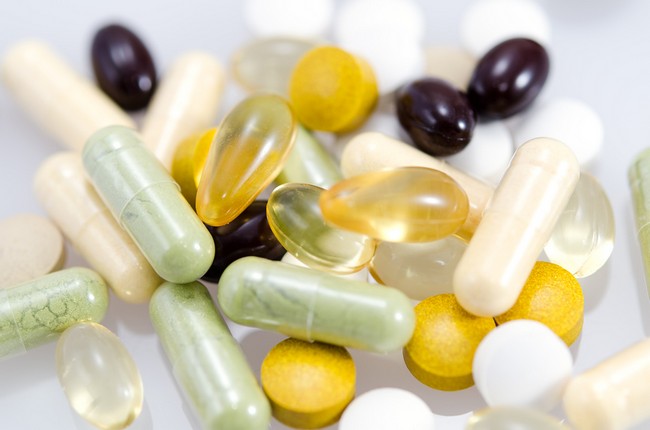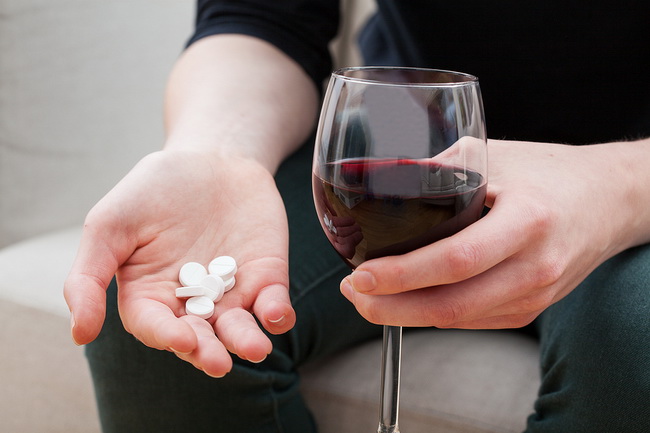- Make It Yourself Lavender Heart-Shaped Bath Bombs!
- 20 Things You Never Knew About “Down There”
- 12 Best Foods For Those Suffering From Arthritis Pain
- 12 Personal Hygiene Mistakes Almost Everyone Makes (Mom Never Told You About #4!)
- 15 Medicinal Plants And Herbs From The Cherokee People
- 12 Mind-Blowing Benefits Of Drinking Coconut Water During Pregnancy
- 12 Outstanding Winter Foods That Won’t Fatten You Up Like A Christmas Turkey
Drugs that Relieve Joint Pain are Silently Killing You

Photo credit: bigstock.com
A new study out of Demark shows that there are dangerous side effects to taking COX-2, also called C2Is, for joint pain.
Although COX-2 inhibiting drugs are designed to stop the inflammation that the COX-2 enzyme causes, they have been shown to cause more harm than they do good. COX-2 medications are more powerful than standard NSAIDS like ibuprofen and naproxen. These are so powerful that you need a prescription to get them but doctors everywhere are happily writing these prescriptions as though they were for candy.
Aarhus University Hospital researchers looked at the data from more than 100,000 subjects. Each of these persons had their first stroke between the years of 2004 and 2012. Scientists then looked into their C2I use. Researchers considered the specific brands and types of drugs that were taken as well as the length of time they were consumed.
This study showed that the subjects who were currently on COX-2 inhibitors were 19 percent more likely to die after they had a stroke. As if this weren’t bad enough, the news gets worse. People who are new to COX-2 inhibitors were at a nearly 50 percent greater risk of dying from a stroke than those who did not use these types of drugs.
In fact, subjects who consumed a specific type of C2I, etodolac, were 53 percent more likely to die should they have a stroke.
Continue to Page 2

Photo credit: bigstock.com
Of course, our medical community knows just how dangerous these drugs are. New COX-2 inhibitors have a very hard time getting approval for sale. Approved drugs have a hard time staying on the market, as their dangerous side effects are quickly discovered once they are in use. So the older COX-2s, the ones who have the most money invested in them, tend to stick around, however.
It’s interesting to note that this study found no link between the normal, non-selective NSAIDS and stroke or death. Although regular NSAIDS are known to cause damage to the lining of the stomach and are linked to liver damage, COX-2s have their own unique health threat.
If you have any type of history of strokes, or if strokes run in your family history, your doctors should never even think about prescribing these drugs for you.
This study only adds to the mounting evidence that these types of arthritic pain relievers greatly increase your risk of stroke and heart attacks, as well as your chances of dying after a stroke.
The good news is that there are completely natural ways of dealing with inflammation; things that will actually lower your risk of stroke, instead of increasing it.
The omega-3 fatty acids found in wild caught salmon and other fatty, cold water fish such as anchovies and sardines help to keep inflammation under control.
Also, consuming a diet that is plant based, with added healthy fats such as coconut oil and avocados, as well as whole, raw dairy and dairy products such as butter, are terrific ways of controlling inflammation and the pain it brings. One study found that for every 200mg of fruit and vegetable you eat each day, you can lower your risk of stroke by as much as 32 percent. This effect can happen at any age, anytime you decide to eat a healthy, organic diet.
If you are middle aged, you can also try adding high intensity interval training to your workouts. This will not only keep your joints healthy, but it will lower your risk of stroke by 60 percent! Pretty good odds for only 20 minutes of exercise, 3 times per week! Read more about 5 most vital exercises you may do.
All of the above are effective, yet natural means of lowering not only inflammation, but lowering your risk of stroke, all without a single pill or side effect.
Continue to Page 3

Photo credit: bigstock.com
By the way, you should know that NSAIDS, although they are widely sold all over the world over the counter, are not safe either. Although NSAIDS are better tolerated than some other drugs, for some people NSAIDS such as naproxen, ibuprofen, and aspirin are known to cause severe gastrointestinal damage. For some people this damage can be life threatening.
You should talk to your doctor if you take these types of pain relievers so you can discuss why and how many you take for pain. Older females are the group most likely to suffer adverse gut issues with the use of these pain relievers. Also, those with a history of any type of stomach ulcer or stomach problems should discuss using these drugs with their doctors before they consume them.
Always employ the lowest dose and for the shortest amount of time that is necessary to relive pain. Among aspirin, diclofenac, ibuprofen, and naproxen, naproxen is believed to be the safest choice, especially for those with heart issues.
All NSAIDS may increase your risk of heart attack and cause small amounts of gastrointestinal bleeding. Now this does not apply to acetaminophen (Tylenol) but acetaminophen is NOT an anti-inflammatory.
So although COX-2 inhibitors were thought to be better than NSAIDS, it has been shown over and over that that is certainly not the case.
Sources:
































